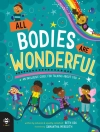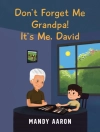The bond siblings develop in childhood may be vastly different from the relationship that evolves in adulthood. Driven by affection but also characterized by ambivalence and ambiguity, adult sibling relationships can become hurtful, uncertain, competitive, or exhausting though the undercurrents of love and loyalty remain. An approach that recognizes the positive aspects of the changing sibling relationship, as well as those that need improvement, can restore healthy ties and rebuild family closeness.
With in-depth case studies of more than 260 siblings over the age of forty and interviews with experts on mental health and family interaction, this book offers vital direction for traversing the emotional terrain of adult sibling relations. It pursues a richer understanding of ambivalence, a normal though little explored feeling among siblings, and how ambiguity about the past or present can lead to miscommunication and estrangement. For both professionals and general readers, this book clarifies the most confounding elements of sibling relationships and provides specific suggestions for realizing new, productive avenues of friendship in middle and later life—skills that are particularly important for siblings who must cooperate to care for aging parents or give immediate emotional or financial support to other siblings or family members.
表中的内容
Preface
Acknowledgments
Part I: Introduction to Adult Siblings
1. The World of Adult Siblings
2. Sibling Relationships: Studies from Biology
Part II: What We Learned About Siblings from Our Research
3. Sibling Relationships in Middle to Late Adulthood: What’s Age Got to Do with It?
4. The Perceived Impact of Parents on Sibling Relationships Across the Life Span
5. When Sibling Relationships Are in Serious Trouble
6. Adult Sibling Relationships with Step- and Half Siblings
Part III: Case Studies
7. When Siblings Cut Off Contact
8. Coping with the Death of a Sister (a Twin) and Other Losses
9. Three Brothers Who Get It Right
Part IV: Therapy Approaches
10. Working with Siblings When Aging Parents Need Care, by Barbara Kane and Linda Hill
11. Dealing with Adult Siblings in an Emergency Health Crisis, Anne P. Hahn
12. Therapy with Sibling Issues
13. Looking Forward to Fostering Better Sibling Relationships
Appendix: Study Methodology and Implications for Future Research for Clinical Work
Notes
References
Index
关于作者
Geoffrey Greif is a professor at the University of Maryland School of Social Work and has been teaching and practicing family, group, and individual therapy for more than forty years. His books include Two Plus Two: Couples and Their Couple Friendships and Buddy System: Understanding Male Friendships.Michael Woolley is an associate professor at the University of Maryland School of Social Work and director of research at the Maryland Longitudinal Data System Center. He is a research fellow of the Society of Social Work and Research and has published dozens of articles and book chapters on both educational issues and practice with children and families.












